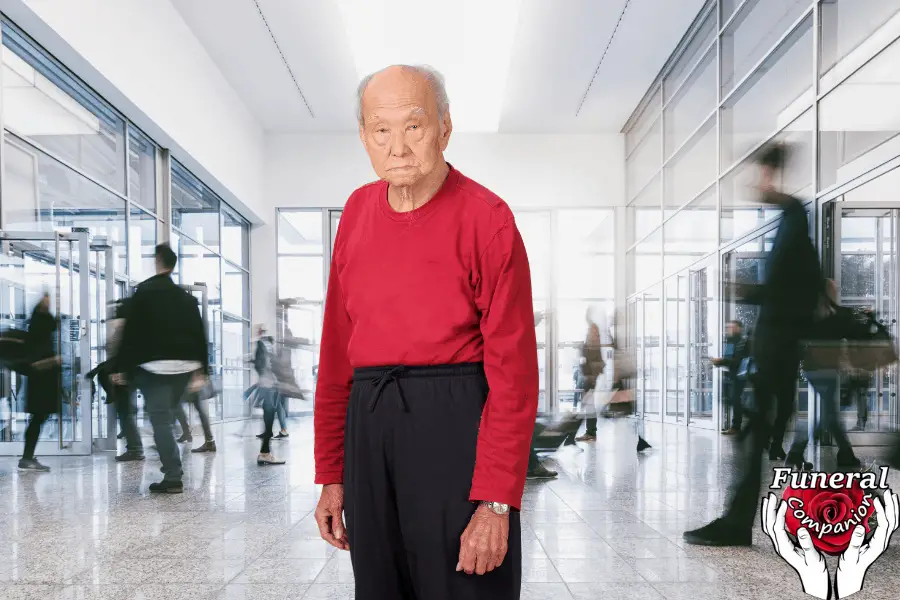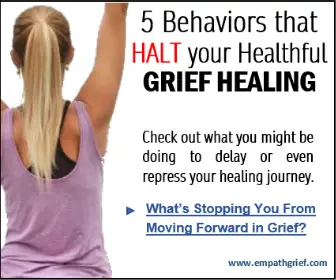Death is always a tragic process. It is one that we all must go through alone. For those who are left behind, we need to see that our loved ones and others are treated with respect, and are dealt with properly after they die.
Although dying without any known family does happen regularly, there are still many complications that arise when somebody dies without any known family. Often it falls to friends and even concerned neighbors to take up the tasks that family members would normally fulfill
Here are some guidelines and directions to follow when dealing with the death of someone without any family.
The first thing to look at when somebody dies without family is the “next of kin hierarchy”. It establishes who is in charge of handling the funeral & estate. If there’s no one suitable, the State will decide who is responsible. If no one takes responsibility, DSS will then step in and take charge.
In fact, it’s not a very straightforward process and does involve understanding exactly what needs to happen in terms of legality.
This article will cover in more detail any unknowns, as well as some things that you may not have thought of when you are handling a burial of someone without any next of kin.

Pre-death preparation
Although we all know that we can’t avoid it, most Americans pass away without giving clear instructions about their after-life care. When you don’t have family who are likely to come to your aide and give you a decent send off, preparing a will is very important.
If you are in this situation or are close to an elderly person who is likely die without blood-relatives around them, bring this topic up is vital.
Where can I go to write a will?
In the case that the person is aware that they are fairly close to death and don’t have any known family, they can certainly go down this route and make sure all their affairs are in order.
The best way to go about this is to talk to your lawyer. They will have all the professional guidance necessary to make sure this is done right, much farther in-depth than this article will have any ability to go.
DISCLAIMER: In no way am I a legal professional and you should always listen to the advice of a lawyer over any information given here.
Alternatively, there are a few other ways that may even save you a bit of money. Services like Legal Zoom, a more expensive option at about $180, can help you set up your will and trust by yourself online. While this is a US-based company, you may need to look at another option depending on where you live. For example, AFFIO operates out of the UK and only costs around $65.
I recently looked into getting a loan and I’ve actually had a good experience with Supermoney.com. For me, it was a car loan but I spoke to them about a dedicated funeral expenses loan, which is one of the services they offer, and was quite impressed. To see if you could qualify, check out my link here.
Can I establish a power of attorney before death?
This could be a tricky one if you are a person dying without any known relatives, and establishing a will would do this job quite well in the first place. However, if for some reason the person is not capable of writing a will or has been deemed incompetent by a court system, then this could be a viable option.
Since we are talking about a person that doesn’t have any living relatives, a power of attorney should be somebody that the soon to be deceased trusts greatly. Likely a friend that lives close-by or even the person’s caretaker sometimes grows close enough to the person for them to grant them this distinction.
Granting someone power of attorney over your estate gives them the ability to distribute your finances, belongings, and anything you own to any other party just as the person would.
It also leaves them in charge of paying off any debts and bills the person may have owed. Also, this person will deal with any life insurance claims the deceased may have been eligible for.
Now, if you are reading this on behalf of someone who want to make YOU their power of attorney, you may be a bit weary of taking on someone else’s debts. Well, depending on where you live and even which state you live in, there are different rules and regulations as to who is liable.
If you are learning the lessons of not having life insurance and leaving your loved ones with enough money to cover your final expenses, then see my recommended life insurance brokers for the cover you REALLY need.
So, please speak to your lawyer and also have a look at some of my articles listed below:
- Paying Medical bills After Death In New York State
- Paying Medical bills After Death In California
- Paying Medical bills After Death In Wisconsin
Unexpected Death
In the event of sudden death, the golden rule is that the next of kin will handle all affairs of the deceased. Where this can get tricky is establishing the next of kin.
When this person is not clearly identified, namely in a will or living spouse or relative, the authorities will follow something called the “Next of Kin Hierarchy”. You can look at it in more detail at the law here. This will range from a partner, living immediate family, grandchildren, cousins, second cousins, and finally a legally appointed trustee.
How do I choose the best funeral home?
Choosing the best funeral home largely depends on the deceased. Assuming you don’t know all that much about the person, as in the nature of this article, it would be best to do a little research about the person first.
What city did they grow up in? What people might want to know about the person’s death? What did they enjoy doing in their life? What accomplishments or imprint did they leave on the world? Was the person religious? The answers to these will go a long way to helping you find the right funeral home.
The biggest choice when it comes to the best funeral home to choose would be the city it is located in. Would it be better for the person to have their funeral in a different city to the one in which they died? Many of the person’s friends or perhaps old co-workers may attend if you were to choose the right city.
If the person was a devout catholic for example or committed to any other religion it will make a big difference on which funeral home would be appropriate. Luckily, this information should be quite easy to find out.
Once you know you can find a funeral home affiliated with that religion by searching within the chosen city. Finding a funeral home that regularly works within a certain religion would make it very easy as they will know the correct procedures. Also, it’s far cheaper to actually have a funeral at, say a church, than actually in the funeral home itself. Something else to consider later.
Lastly, if the person would like to be cremated or buried is an important thing to know. Granted this could be a tough one to nail down if you do not know the person.
If you happen to know the answer, finding a funeral home that operates its own crematory, if they wanted to be cremated, or has a business relationship with a cemetery if they wanted to be buried, is an important decision.
If you are able to find out the person’s religion, assuming they have one, typically there will be some guidelines associated with that.
After researching the person, there are many online guides catered specifically to finding the right funeral home online, such as everplans.com or funerals360, where you can find more information and insight than just the confines of this article.
Of course all of this assumes that you have enough of a connection to the deceased that you are willing to go the extra mile to give them a proper funeral that perhaps their long lost friends could attend. If you are just fulfilling a civic duty, then there are in fact options such as direct funerals and even medical donation which you could explore.
Who Pays for the Funeral?
In the case someone has died in an unexpected manner with no known relatives, there are always some expenses that will need to be covered. Life insurance will typically cover many expenses for the recently deceased. But, what happens when someone does not have life insurance or any direct relatives to cover these costs?
Please read my more in-depth article on this topic for even more details.
In the event that there is no insurance or family to cover the cost of the funeral, the city council will conduct a public health funeral for the person, sometimes called a “pauper’s funeral”. This option is usually available for deceased people whose family is still alive but is not able to cover the cost of a funeral.
If you are reading this and thinking, wow maybe I should get some cover, then feel free to learn about my recommended life insurance brokers here.
Typically it includes a coffin and a funeral director to oversee the burial or cremation and this will vary depending on the laws and regulations of your state, district, and of course country. It will not include things like flowers (see my recommended florists), obituaries, transportation, or an engraved headstone
If you need to order flowers for a funeral then I can really recommend BloomsToday.com as I had an excellent experience buying from their site. You can check out the deals they have here, but when I ordered it was 25% off! Fingers crossed!
Who speaks at the person’s funeral?
As speaking at a funeral, or any public speaking for that matter, can be a daunting task, it is important for these people to be chosen carefully and be capable of the job.
For a lot of people who knew the person, it could be too emotional for them to approach the podium and say anything of substance about the person. If there is a person that knew the deceased that is comfortable speaking in front of a large group, they would be ideal candidates.
If nobody matches the aforementioned criteria then it will be just fine to let a priest say a few words about the person, perhaps with the recommendations of a few of the people in attendance at the funeral.
For the most part, it would be best to avoid letting people speak that didn’t actually know the person unless they have some connection to the person.
If you are the chosen person to speak typically anything you could say that was good about the persons’ life and the impact they had would be ideal.
Keep the purpose of your eulogy to help the people in attendance feel a bit more comfortable around the persons’ death. This will be one of the last memories that anyone there will have of the person, best make it a good one.
If you are thinking of writing an obituary, you may find it helpful to read some of the ideas I’ve listed in this article here.
Which is better cremation or burial?
Deciding whether to cremate or bury the person is a very important decision and one of the first ones you will make. As mentioned earlier, this decision will affect the funeral home that you might choose to handle the operations.
Burial is the fail-safe go-to option and will abide by the laws in most circumstances. However, the cost of burial can range from around $2,300 to $3,500 for even the simplest of conventional burials.
This could potentially put you and maybe the funeral home at a loss. At least this way, if the family shows up at some point down the line, there can be no issues with improper cremation connected to religious beliefs.
Cremation is the cheaper option, the whole process will wind up costing you around $1,600. The catch is if there is no clear evidence that the person wanted to be cremated after death, then according to the state law in places such as New York, you are not allowed to just move forward with a cremation.
In the case that somebody did not have the proper documentation or any family or living relatives in the hierarchy to make the decision, cremation would be impossible.
So, do your homework and check the laws in the state that you are looking to have the funeral. A lawyer or a funeral home director can usually help you navigate these legal minefields.
What happens to the deceased’s estate?
Although this could be an intriguing situation, as we have all seen the movies where crazy family members show up from all over the world waiting to see who gets the money. Much of the time it is just a sad situation. This is what happens when there is nobody to collect the inheritance.
When there is no will to establish a person to be in charge of the estate, depending on the state, the law will provide a list of people who are eligible to fill the role. This will be up to them to establish people whom they deem appropriate to manage the deceased estate.
This can be tricky as the person selected will have the option of whether or not they would like the job. Keep in mind that any debt that the person still owes could then be their responsibility (assuming the estate is small and you live in certain states). It is best to do some careful research and speak to your lawyer before accepting any such duties.
If you are chosen and you are not seeing the bright lights of glamour, a bit of legal advice from a professional might help. You can have a look at a relevant article here.
Of course, it can also be just as likely that a person dies without any money at all, and even you, as a good Samaritan, cannot pay for even a basic funeral. Who pays for funerals when there is no money? Well, you can read my article to find out.
What happens if you or anyone were to say “no I refuse to handle this”?
Perhaps, this kind of thing has turned out to be a bit more than you wanted to handle. After reading this article and others like it, it may seem that the best decision for you is to walk away and let whatever responsibility rest upon whomever it may.
Cases like this do come up frequently and unfortunately in the United States where nobody has taken on the task of putting the dead to rest properly a rather administrative system takes over.
In these cases, social services will offer out an amount of money (depending on your state) to any funeral home willing to take on the job of burying the person. In the state of New York, the Department of Social Services will offer out around $1,200 for a funeral home to handle what is called a “welfare case” of a “DSS case”. In these circumstances the guidelines are strict; only a simple cloth-covered casket, short visiting hours, and so on are covered in the fee.
If you do the math from my section on the cost of a burial ($2,500-$3,500) and a cremation ($1,600), the $1,200 offered from social services doesn’t quite cover the cost of the proceedings.
Therefore, since the funeral home that chooses to accept this job, will end up in a loss and will do these kinds of things in a charity sense for the community. Without this, there is no other option for handling the deceased, so it must be done.
At the end of the day, even though it’s not a lavish affair, the person still gets a respectful funeral and is laid to rest with professionalism and great care.
What are the “end-of-life” laws in my state?
This can be a tricky topic as it varies greatly and can go into a lot of detail. It is not within the scope of this article to give any legal advice and you should always seek the help of a professional with any specific questions.
If you are looking for a general guide there are many resources online. One of the best I have found is this one. Be careful to do your research before making any decisions regarding these circumstances.





